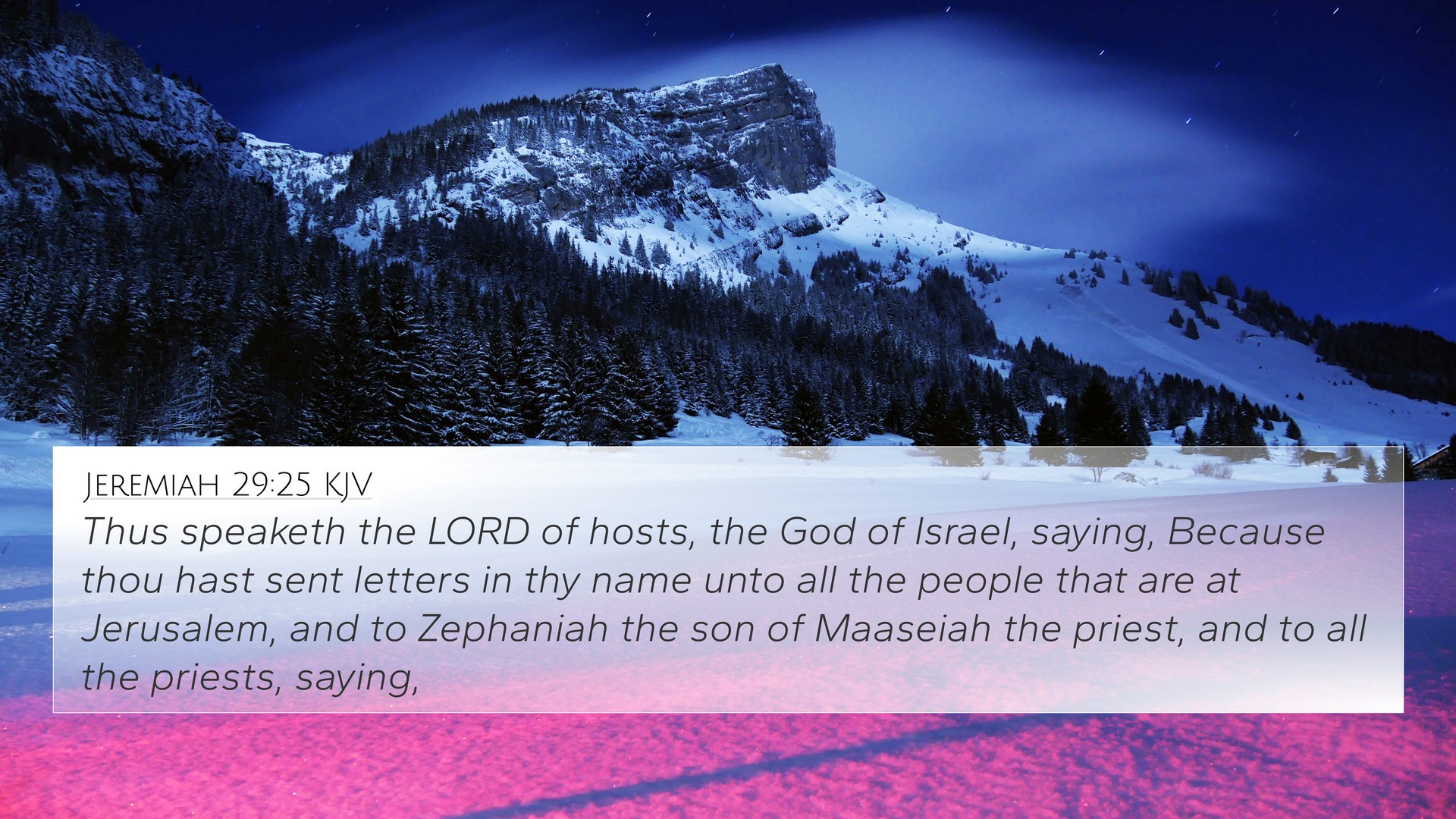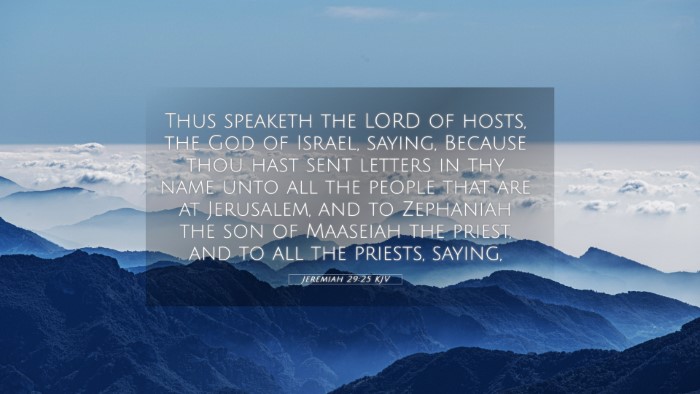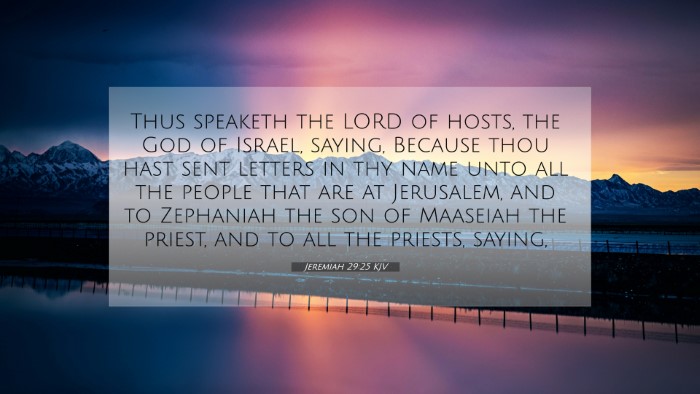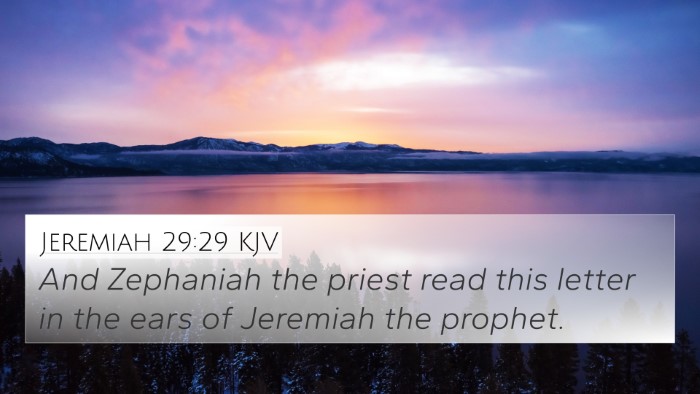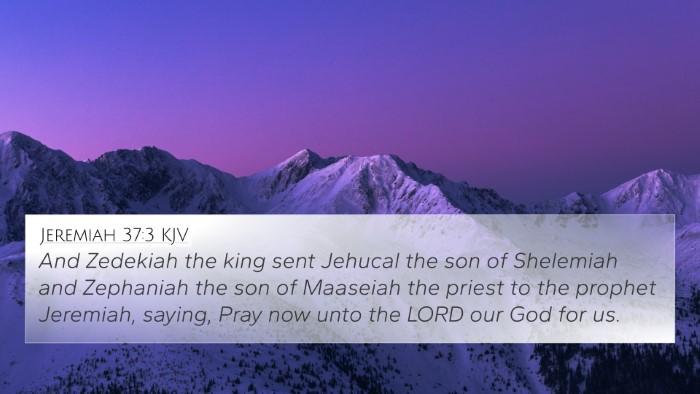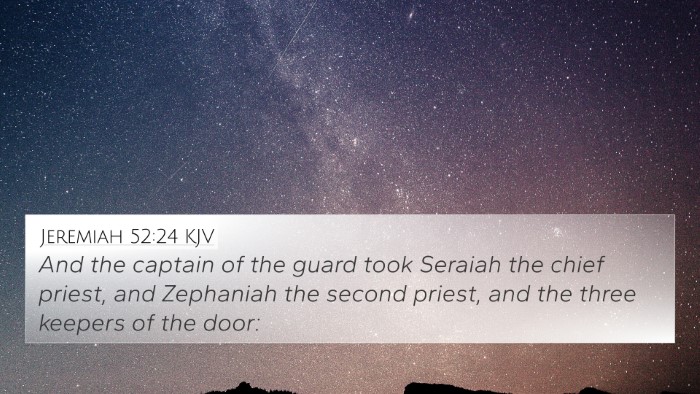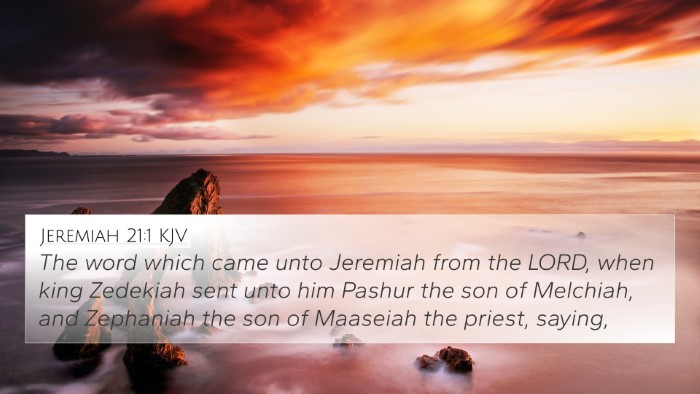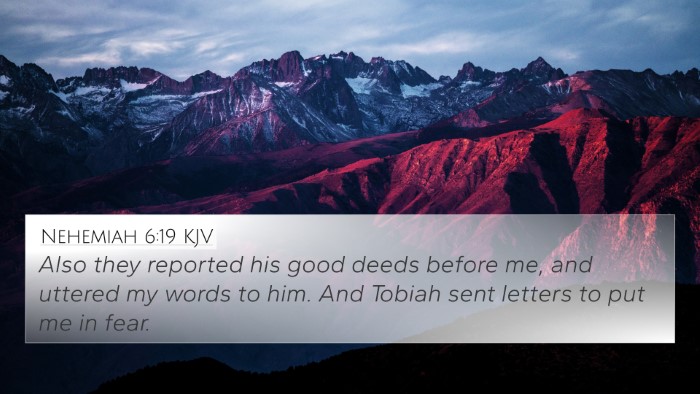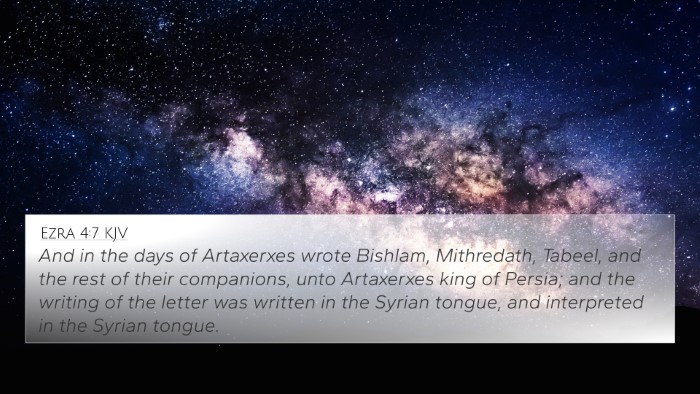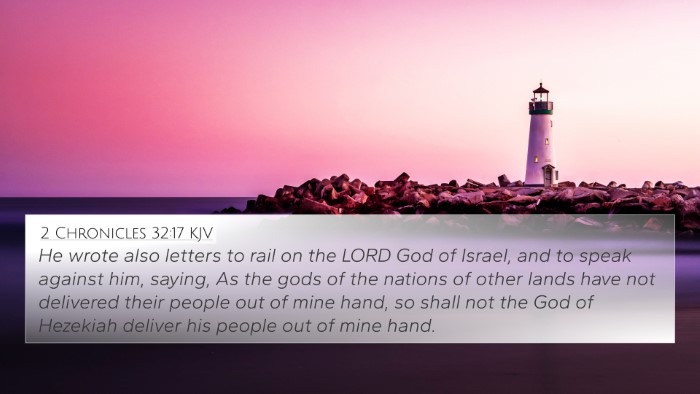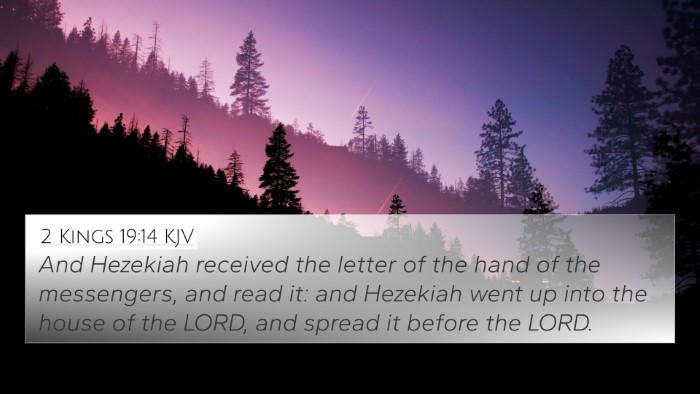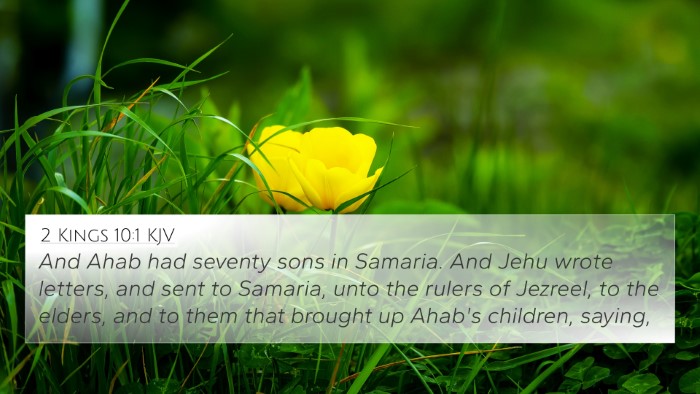Understanding Jeremiah 29:25
Jeremiah 29:25 states:
"Thus speaks the Lord of hosts, the God of Israel, saying: 'Because you have sent letters in your name to all the people who are at Jerusalem, to Zephaniah the son of Maaseiah, the priest, and to all the priests, saying...'" (Jeremiah 29:25, NKJV)
This verse encapsulates a significant message concerning communication among God’s people, the authority of the prophet Jeremiah, and the necessary admonitions against false prophets. Here, we delve into the interpretations provided by renowned public domain commentaries to better understand its meaning.
Summary of Commentary Insights
-
Matthew Henry’s Commentary:
Henry emphasizes that this message from God directly addresses the actions of a false prophet, a significant character in the context of Jeremiah's prophecies. The prophet, Shemaiah, sought to undermine the appointed leaders in Jerusalem by communicating a self-serving message. Henry highlights that God's rejection of this false counsel illustrates the divine protection over true leadership and the sovereignty of His will over misguided ambitions.
-
Albert Barnes’ Notes:
Barnes discusses the implications of sending letters as an act of authority and influence. By writing to the priests and people, Shemaiah hoped to extend his aspirations but was met with God’s firm rebuke. Barnes interprets this verse as a reminder to maintain fidelity to God's appointed leaders and to discern false teachings, which threaten the integrity of the congregation. The letter serves as a caution against straying from the truth conveyed through God's chosen messengers.
-
Adam Clarke’s Commentary:
Clarke brings attention to the theological implications of God's communication through Jeremiah. He notes that the letter sent to Jerusalem contains dire warnings regarding rebellion against God's plan. Clarke emphasizes the importance of understanding the nature of divine communication and the critical reception of true prophetic words, as they guide the community towards faithfulness amid adversities.
Key Themes and Connections
Jeremiah 29:25 highlights several vital themes within Scripture, connecting to a broader narrative found throughout the Bible:
- The Role of Prophecy: This verse showcases how God communicates His will through prophets, marking the importance of discerning true from false messages.
- Authority Structures: It reveals the framework of spiritual authority within Israel, indicating the essential role of priests and prophets in guiding the people.
- Divine Sovereignty: God's intervention through this message emphasizes His dominion over earthly matters and His commitment to keeping His covenant people aligned with His will.
Cross-References for Deeper Understanding
To grasp the context and significance of Jeremiah 29:25 fully, consider the following cross-references:
- Jeremiah 23:31-32: This passage addresses the deception of false prophets, echoing themes present in Jeremiah 29:25.
- Ezekiel 13:1-3: Similar to Jeremiah’s contention against false prophets, Ezekiel calls out those who prophesy falsely.
- Isaiah 30:10: This verse laments the people's desire for smooth sayings rather than the truth, akin to Shemaiah's letters.
- 1 Kings 22:8: The inquiry of Ahab regarding prophets highlights the ongoing theme of recognizing and valifying true prophecy.
- 2 Chronicles 18:18: This section again contrasts the true prophetic voice against the backdrop of misleading counsel.
- Deuteronomy 13:1-3: This Old Testament warning against false prophets reinforces God’s standards for prophetic utterances.
- Matthew 7:15: Jesus discusses the issue of false prophets in the New Testament, urging believers to recognize them by their fruits.
Tools for Contextual Study
For those eager to explore related themes and verses, utilizing tools and methods for Bible cross-referencing is essential. Resources and strategies such as the following can greatly enhance your scriptural study:
- Bible Concordance: A helpful tool to find specific verses related to themes or words, aiding in cross-referencing.
- Bible Cross-Reference Guide: Guides that compile related scriptures can offer a broader understanding of themes.
- Cross-Reference Bible Study: Engaging in study methods focused on cross-referencing verses promotes a holistic interpretation.
- Bible Reference Resources: Utilizing printed or digital study tools can deepen understanding by contextualizing verses.
- Bible Chain References: Techniques that link verses in a chain help to illustrate broader themes effectively.
- Comprehensive Bible Cross-Reference Materials: Accessing extensive databases that catalog verses enhances thematic studies.
Conclusion
Jeremiah 29:25 serves as a significant focal point in understanding the dynamics of prophetic communication within Israel. The insights gathered from public domain commentaries underscore the importance of discernment regarding prophetic messages, the operation of spiritual authority, and God’s unwavering sovereignty. By engaging with cross-referenced verses and utilizing available study tools, believers can foster a deeper connection with the scriptural text, facilitating a richer understanding of their faith.
